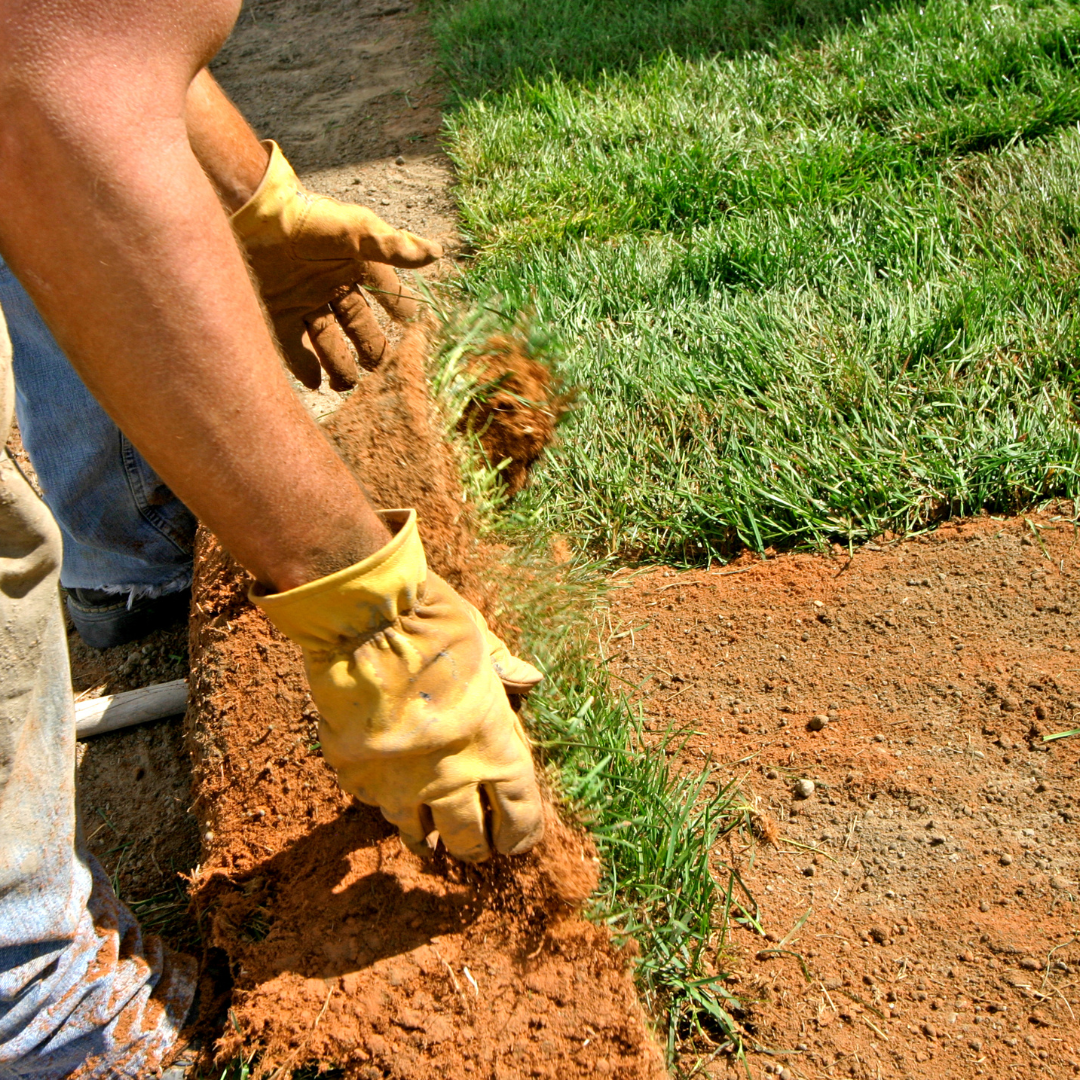Your landscaping business thrives outdoors. You create beautiful spaces. You transform properties. However, attracting new clients often starts online. Many potential customers search for services. They use Google daily. Is your business easy to find? Is it appearing in local searches? This is where landscape SEO becomes vital.
At Rodeo ROI, we help small businesses. We understand your unique challenges. We know how to connect you with clients. Effective SEO is not just a buzzword. It is a powerful growth tool. It brings qualified leads directly to you.
Why Landscape SEO is Your Digital Growth Engine
Think about how people find services today. They rarely use phone books anymore. Instead, they grab their smartphones. They search for “landscaping near me.” They look for “lawn care San Antonio.” Your business needs to be visible. It must appear high in those results.
This is the core of landscape SEO. It optimizes your online presence. It ensures your business ranks well. This means more website visitors. More phone calls follow. Ultimately, it leads to more booked jobs. It is a continuous marketing effort, builds your online authority, and establishes you as a local expert.
Many landscaping companies focus on traditional ads. They might use flyers or word-of-mouth. These methods have their place. However, digital presence is paramount now. SEO offers a cost-effective solution. It delivers long-term results. It helps you stand out.
The Pillars of Effective Landscape SEO
Effective landscape SEO involves several key components. Each plays a crucial role. Together, they create a strong online foundation.
- Google Business Profile Optimization: This is your local lifeline.
- Keyword Research: Understanding what customers search for.
- Website Optimization (On-Page SEO): Making your site search-engine friendly.
- Content Marketing: Providing valuable information.
- Backlink Building: Earning credibility from other sites.
- Online Reviews: Building trust and reputation.
Let’s explore each pillar in detail. Understanding these helps you compete. It ensures your services are found.
Google Business Profile: Your Local SEO Powerhouse
For local businesses, Google Business Profile is critical. It is a free tool from Google, displays your business information, shows up in local search results, and populates Google Maps listings. Optimizing this profile is non-negotiable.
- Claim and Verify: First, claim your listing. Then, verify it through Google. This confirms you own the business. It allows you to manage the profile.
- Complete All Sections: Fill out every detail meticulously. Include your business name. List your address and phone number. Add your website. Specify your hours of operation.
- Choose Accurate Categories: Select categories relevant to landscaping. Be as specific as possible. This helps Google understand your services.
- Add Photos: High-quality photos are essential. Showcase your best work. Include pictures of your team. Show your equipment. Visuals attract more clicks.
- Write a Compelling Description: Use keywords naturally. Describe your services clearly. Highlight your unique selling points.
- Post Regularly: Share updates. Announce special offers. Highlight new projects. Consistent posting keeps your profile active. It signals relevance to Google.
- Manage Reviews: Respond to all reviews. Thank positive reviewers. Address negative feedback professionally. This builds trust with potential clients.
A well-optimized Google Business Profile drives local traffic. It helps you rank in “near me” searches. It is fundamental for any landscape SEO strategy.
Keyword Research: Speaking Your Customers’ Language
Keywords are the words people type into search engines. Finding the right ones is crucial. You want to rank for terms customers actually use. This requires thorough research.
- Brainstorm Core Services: List everything you offer. Lawn mowing, tree trimming, garden design. Include specific services.
- Think Like a Customer: What would you type into Google? Consider common problems clients face.
- Use Keyword Tools: Google Keyword Planner is free. Other tools like Semrush or Ahrefs offer more depth. These tools show search volume. They reveal competition levels.
- Focus on Local Keywords: Always include your service areas. “Landscaping [Your City]” is vital. “Lawn care [Your Neighborhood]” works too. Be specific with locations.
- Include Long-Tail Keywords: These are longer, more specific phrases. “Best drought-tolerant plants for Arizona” is an example. They have lower search volume. However, they attract highly qualified leads.
- Analyze Competitors: See what keywords your local competitors rank for. This can reveal opportunities. It helps refine your strategy.
Effective keyword research forms the backbone. It ensures your content aligns with search intent. It targets the right audience.
Website Optimization (On-Page SEO): Making Your Site Search-Engine Friendly
Your website is your digital storefront. It must be optimized for search engines. This helps Google understand your content. It improves your ranking potential.
- Fast Loading Speed: Slow sites frustrate users. They also hurt rankings. Optimize images. Use caching. Choose a good hosting provider.
- Mobile-Friendliness: Most searches happen on mobile. Your site must look great on all devices. Google prioritizes mobile-friendly sites.
- Clear Navigation: Users should easily find information. Services, contact, gallery. A logical structure helps both users and search engines.
- High-Quality Content: Every page needs relevant, valuable content. Describe your services in detail. Use your keywords naturally. Avoid keyword stuffing.
- Optimized Titles and Meta Descriptions: Craft compelling titles. Write concise meta descriptions. These appear in search results. They encourage clicks.
- Image Optimization: Compress images for speed. Use descriptive alt text. Include keywords in alt text. This helps image searches.
- Internal Linking: Link relevant pages within your site. This helps Google crawl. It distributes “link juice.” It guides users to more content.
A well-optimized website is essential. It supports all your landscape SEO efforts. It provides a positive user experience.
Content Marketing: Showcasing Your Expertise
Content marketing goes beyond sales pitches. It provides value, answers customer questions, and establishes your authority. This builds trust with your audience, and helps you rank for more keywords.
- Start a Blog: Write articles related to landscaping. “How to choose the right grass.” “Tips for drought-resistant gardens.” “Seasonal lawn care tips.”
- Create Service Pages: Detail each service you offer. Dedicate a page to “tree removal.” Another to “irrigation systems.” Provide comprehensive information.
- Build a Portfolio/Gallery: Showcase your completed projects. High-quality photos are crucial here. Describe the project and your process. This demonstrates your work quality.
- Develop “How-To” Guides: Simple guides for common lawn problems. This positions you as an expert. It attracts DIY enthusiasts who might eventually need professional help.
- Local Guides: Create content about local plants. Discuss specific challenges in your climate. This shows local expertise. It targets your regional audience.
Consistent, high-quality content keeps your site fresh. It attracts organic traffic, nurtures potential leads, and is a long-term investment.
Backlink Building: Earning Digital Votes of Confidence
Backlinks are links from other websites to yours. They are like votes of confidence. Google views them as credibility signals. High-quality backlinks boost your domain authority. This directly improves your rankings.
- Local Directories: List your business in relevant directories. Yelp, Yellow Pages, local chambers of commerce. This provides foundational backlinks.
- Guest Blogging: Write articles for other local businesses’ blogs. Provide valuable content. Include a link back to your site.
- Community Partnerships: Collaborate with local nurseries. Partner with home improvement stores. Seek mutual linking opportunities.
- Local Sponsorships: Sponsor local events or sports teams. Often, sponsors get a link on the event website. This generates local backlinks.
- Broken Link Building: Find broken links on relevant sites. Offer your content as a replacement. This requires outreach.
- Content Promotion: Share your best content widely. Encourage others to link to it. If it’s truly valuable, links will follow naturally.
Focus on quality over quantity. Relevant, authoritative backlinks are best. Avoid spammy tactics. These can harm your SEO.
Online Reviews: Building Trust and Reputation
Online reviews are incredibly powerful. They influence purchasing decisions. They build trust with new clients. Google also uses them for local ranking. More positive reviews can lead to higher visibility.
- Ask for Reviews: Actively encourage satisfied customers. Send a follow-up email. Provide a direct link to your Google Business Profile.
- Make It Easy: Simplify the review process. Offer clear instructions. Avoid making customers jump through hoops.
- Respond to All Reviews: Thank positive reviewers. Address negative feedback professionally. Show you care about customer experience.
- Address Negative Reviews Constructively: Do not get defensive. Offer solutions. Take the conversation offline if necessary. This demonstrates excellent customer service.
- Showcase Reviews: Display positive testimonials on your website. Share them on social media. This builds social proof.
Positive reviews strengthen your reputation. They improve your local landscape SEO. They make your business more appealing.
Measuring Your Landscape SEO Success
SEO is not a one-time task. It is an ongoing process. Regular monitoring is essential. This helps you track progress. It allows for necessary adjustments.
- Google Analytics: Track website traffic. See where visitors come from. Monitor bounce rates. Understand user behavior on your site.
- Google Search Console: Monitor your search performance. See what keywords you rank for. Identify any crawl errors. Check indexing status.
- Local Rank Tracking Tools: Monitor your position for local keywords. See how you compare to competitors. Track your progress over time.
- Lead Tracking: Monitor how many calls you get. Track website form submissions. Link these back to your SEO efforts. This shows direct ROI.
Data guides your strategy. It helps you refine your approach. It ensures your landscape SEO efforts are effective.
Partner with Rodeo ROI for Your Landscape SEO
Implementing effective landscape SEO takes time. It requires specialized knowledge. Small business owners are busy. You focus on your craft. You serve your customers. That is where Rodeo ROI steps in.
We are experts in digital marketing, understand small businesses, and craft tailored SEO strategies. Our team helps you navigate the complexities. We identify key opportunities, implement proven tactics, and provide clear, measurable results.
Let us help you grow your business online. Attract more local clients. Fill your schedule with qualified leads. Achieve consistent growth. Your expertise in landscaping is clear. Our expertise in SEO is strong.
Contact Rodeo ROI today. Let’s discuss your landscape SEO needs. Turn your online presence into a powerful growth engine. Grow your green with confidence.






